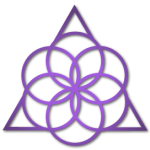Simple, repeated actions of our ordinary lives are transformed into elegant acts of mindful beauty to reflect the grand harmony intrinsic in Buddha-Nature/Tao/Spirit. The Japanese concept of the mindful performance of a simple, repeated action in daily life and in more specialized martial arts training is called kata.
A kata is a conscious regular pattern of movement, like stepping while walking, bowing, touching the fingers together, placing a flower in a vase, holding a cup, pouring from a vessel, cutting food with a knife, swinging a sword, flowing a calligraphy brush or sitting for meditation, becomes a spiritual act of ritualized art. Each simple movement or position of the body is expressed as a whole body awareness so that the head and tail, hands and feet, front and back, right and left are consciously sensed simultaneously. One part may move while another part is more stable and static. At the same time, within an integrated system, all parts dynamically adjust to each other’s movement to maintain coherence and harmony of the whole.
Ancient katas, such as bowing, giving and receiving with both hands, and presenting a gift, are still widely practiced throughout 21st century Korean and Japanese cultures. If you buy a simple product at a store, especially in Kyoto or Tokyo, it is always wrapped beautifully, skillfully with an economical use of materials, and then presented with both hands and a bow. In a modern business setting in the Far East, the proper performance of common katas, like the exchange of business cards, is measured to determine that person’s professional qualifications.
However, kata can be seen as higher than being solely a form of proper societal etiquette. In Zen and Shingon Buddhism, a kata is elevated to the status of a form of spiritual art to help glorify the beauty and harmony of Buddha-Nature. It is also used as an outer means to transcend limited form as consciousness expands within embodiment. Repeated movements during temple practices and daily practices within Zen and Shingon are katas containing mudras.

